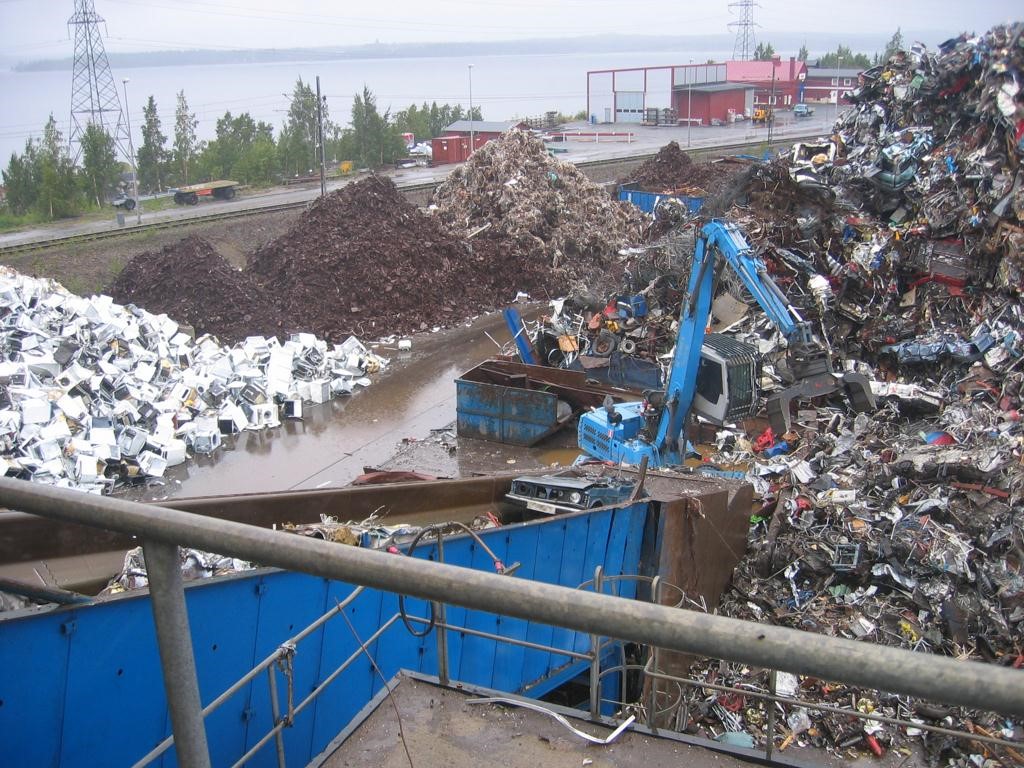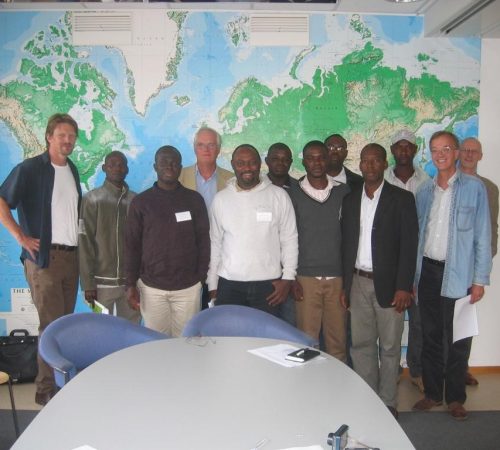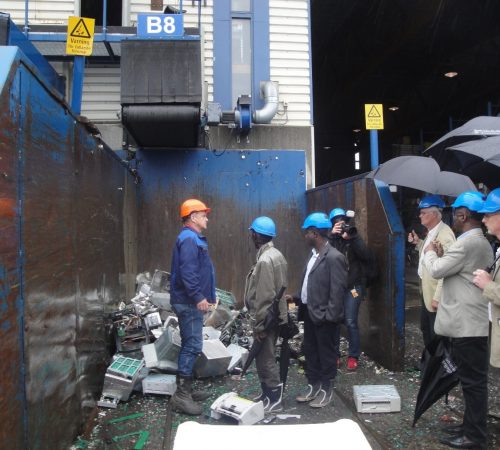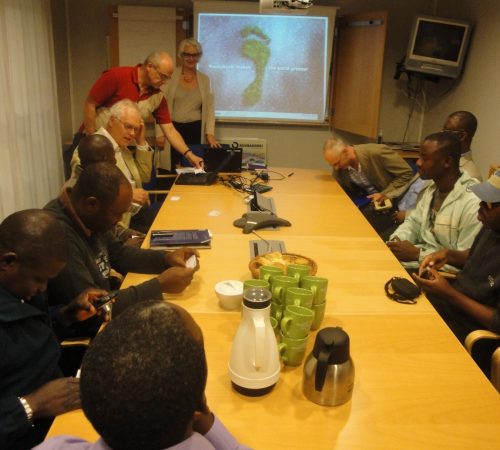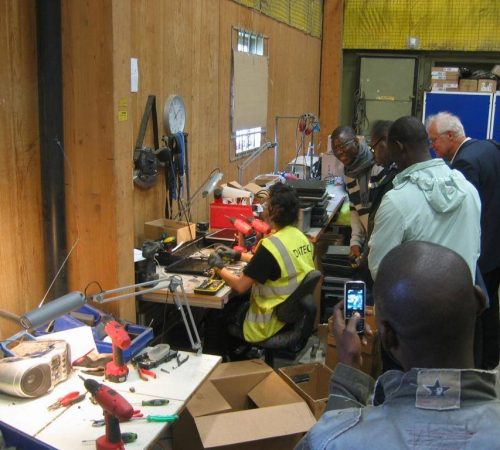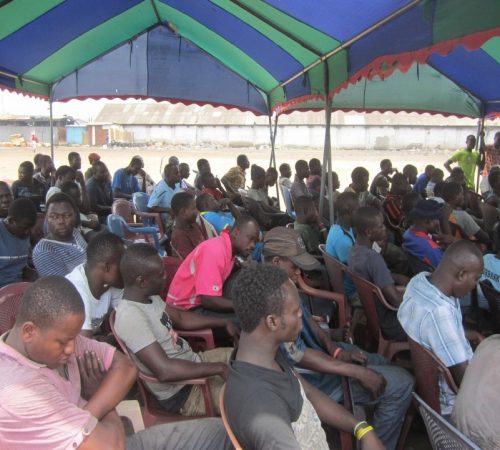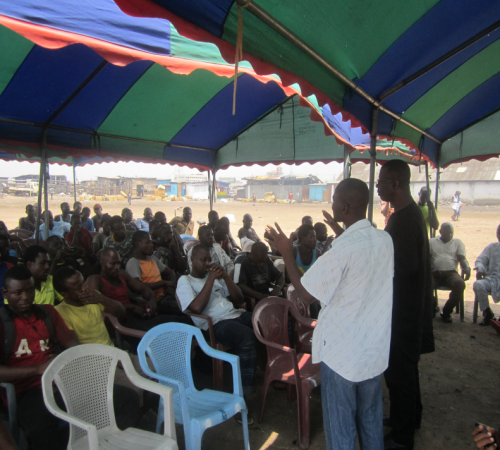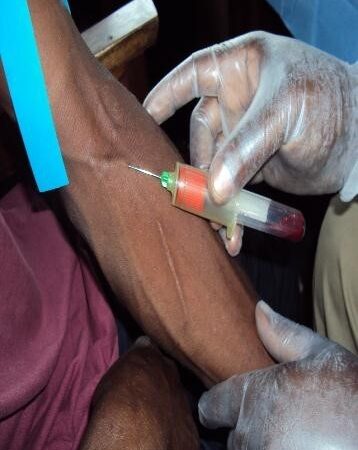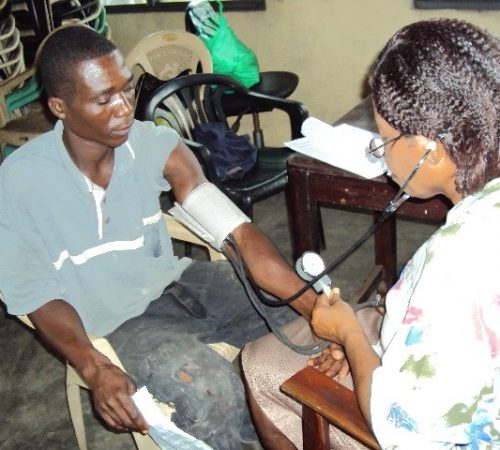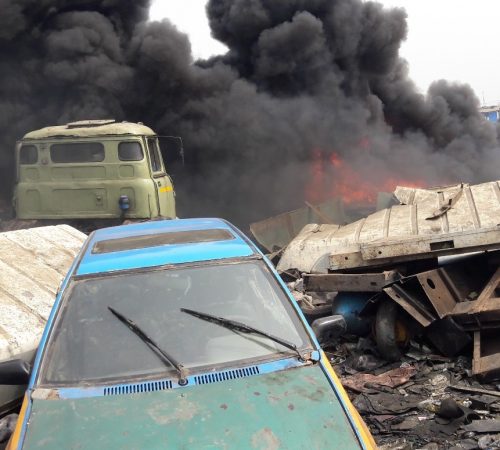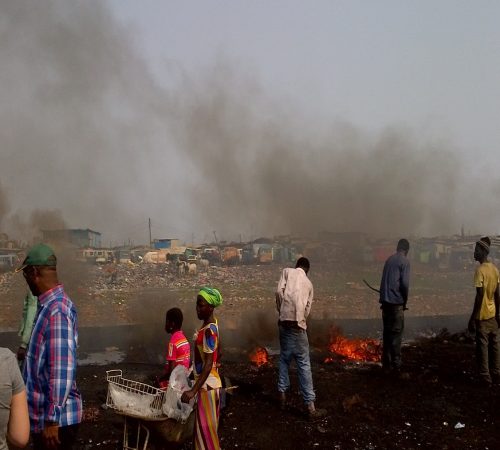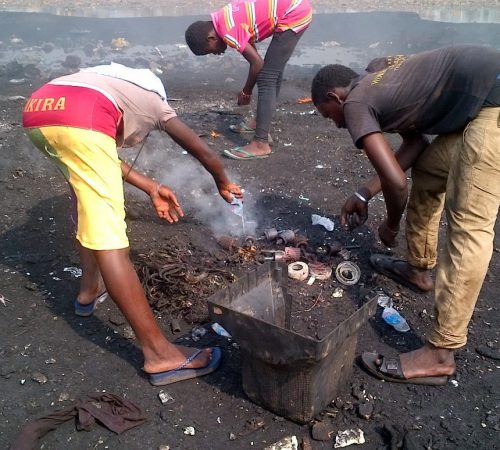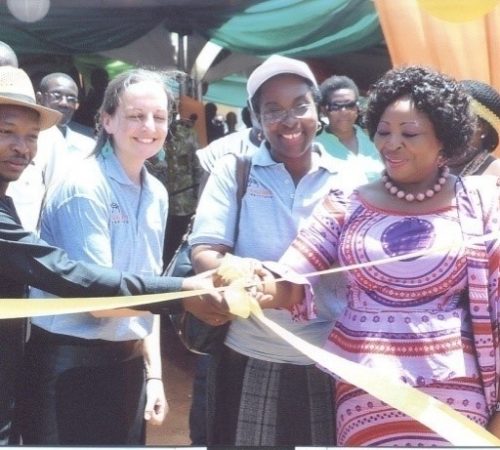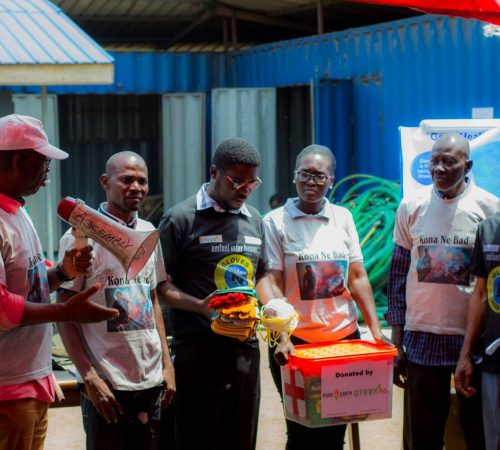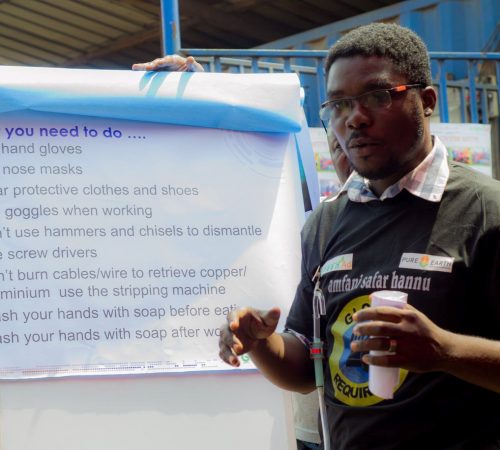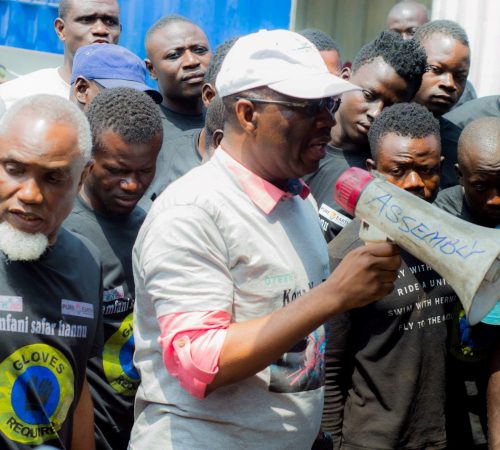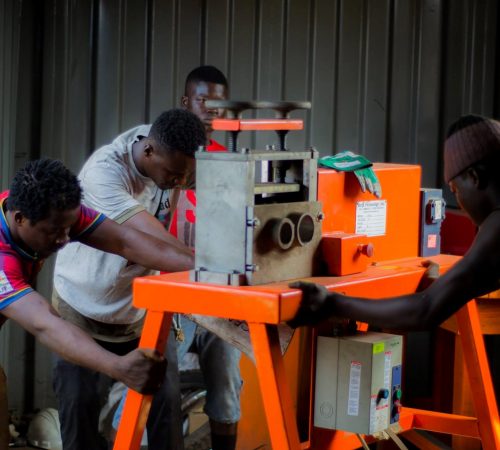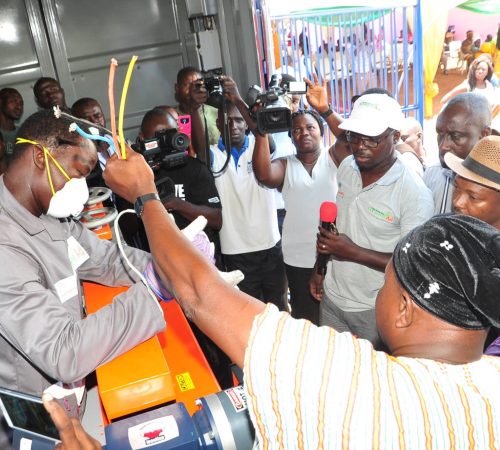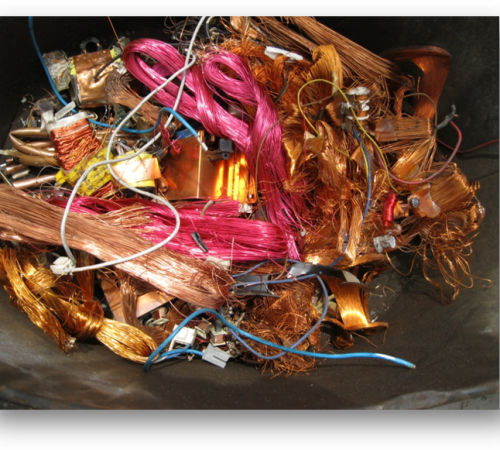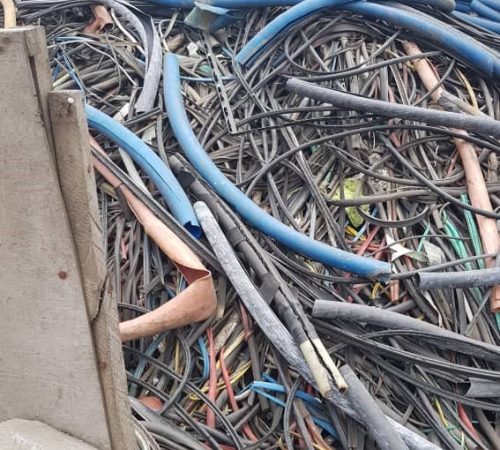Ghana’s E-waste Story
The Agbogbloshie scrap metal site in Accra is Ghana’s largest center for electronic waste (e-waste) recycling and disposal. Workers manually disassemble parts and burn off the plastic encasements on computer/electronic wires and refrigerator coils in controlled fires to recover profitable metals, mainly copper. It is an informal area with the work often done by young adults using inefficient tools without protective equipment. This leaves them susceptible to respiratory diseases and exposure to harmful levels of heavy metals and other pollutants. Air pollution from the burning affects workers as well as those living and working nearby.
- NORDIC Fund Project (Energy efficient recycling of electric and electronic scrap, e-scrap) –Sweden
E-scrap (secondary raw materials) is a valuable source of raw materials, as it contains valuable concentrations of metals. The handling of e-scrap in Ghana is typically done by poor people working in the informal sector using simple manual methods, including open burning of flammable e-scrap components, at sites that expose them to hazardous and toxic substances and which pollutes land, water and air.
Currently only a fraction of the metals are recycled. The extraction of metals from e-scrap requires much less energy than the extraction from virgin ores, e.g. the extraction of the same amounts of metal from secondary raw materials requires, depending on the different metals, between 50 and 90% less energy than the extraction from primary raw materials.
The project’s innovative feature is that it is the first time a project related to e-scrap in developing countries focuses on e-scrap as a valuable resource. Furthermore, it is also the first time in a developing country where the climate aspect of extracting metals from e-scarp is acknowledged in a project through the energy saving potential.
Capacity building and training are important project components that will help the e-scarp workers recycle more valuable materials more efficiently, with improved methods.
- DATEC Training of e-waste handlers
As part of the NORDIC Facility funded project GreenAd, Raw Materials Group AB and DATEC visited the Agbogbloshie dumpsite on studies conducted earlier in 2011 and found that one of the major problem on the site was crude methods used to dismantle EEEs to remove their plastic and metal casing to expose the copper, brass and aluminium found in them. It is from this that the three organizations decided to find simple technological solutions to the problem. A demonstration involving the use of simple tools and equipment for dismantling was undertaken over the course of five (5) days to find out how acceptable they will be to the e-waste handlers on the Agbogbloshie dump yard.
- Health Survey of Workers at Agbogbloshie
The overall objective of the study was to assess and describe the health status and extent of exposure of handlers of e-waste to the chemicals associated with electronic waste. One hundred and eight (108) recyclers attended the meeting.
- Launch of E-waste Pilot Centre to Eliminate Burning as a means of metal recovery
- Pilot testing of e-stripping equipment
Agbogbloshie, the nerve centre of electronic waste ‘recycling’ in Ghana, has a rather poor and an infamous image from its phenomenal pollution that afflicts the population of part of the capital city of Ghana, Accra. The major source of the polluting activity is cable (plastic sheath) burning to recover Copper wire.
Green Advocacy Ghana (GreenAd), the Blacksmith Institute (Pure Earth) and other partners have collaborated to help improve the hazardous working conditions of the electronic-scrap handlers, and to avoid the environmental pollution problem and public health exposure risk to southern Accra. The collaboration led to a number of studies (country assessment of e-waste (mass flow), socio-economic impact, heavy metal exposure (human and environment), etc.), sensitization and awareness creation, as well as international exposure to best practices in e-scrap recycling.
In 2013, Blacksmith Institute (Pure Earth) initiated a small pilot project that involved utilizing wire-stripping equipment to decrease burning and therefore air pollution and associated health effects at the site. The machines are in a self-contained recycling facility directly in the center of Agbogbloshie and adjacent to current ‘burn fields’. The wire-strippers, while useful, are only able to process a small portion of the wires entering the recycling center. Therefore, burning of fine cables continues at the site.

